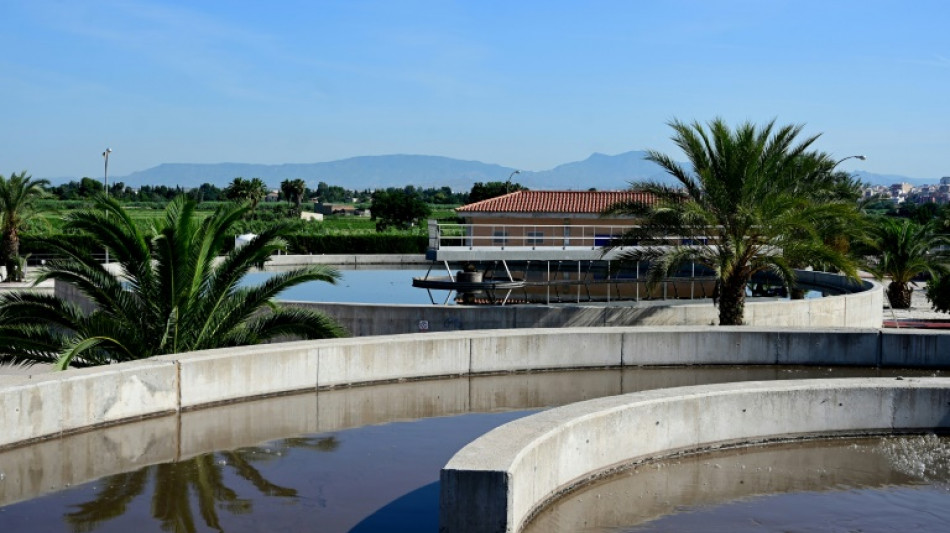
-
 BMW 7 Series and i7: facelift in 2026
BMW 7 Series and i7: facelift in 2026
-
Eileen Gu makes history with Olympic freeski halfpipe gold

-
 Eileen Gu makes history with Olympic halfpipe gold
Eileen Gu makes history with Olympic halfpipe gold
-
Morocco flood evacuees mark muted Ramadan away from home

-
 Lucid Gravity 2026: Test report
Lucid Gravity 2026: Test report
-
Sri Lanka restrict England to 146-9 in T20 World Cup Super Eights

-
 West Indies wary of Zimbabwe's 'X-factor' quick Muzarabani
West Indies wary of Zimbabwe's 'X-factor' quick Muzarabani
-
Bentley: Visions for 2026

-
 Eileen Gu wins Olympic gold in women's freeski halfpipe
Eileen Gu wins Olympic gold in women's freeski halfpipe
-
First 'dispersed' Winter Olympics a success -- and snow helped

-
 Six stand-out moments from the 2026 Winter Olympics
Six stand-out moments from the 2026 Winter Olympics
-
Andrew's arrest hands King Charles fresh royal crisis

-
 Afghans mourn villagers killed in Pakistani strikes
Afghans mourn villagers killed in Pakistani strikes
-
Jeeno Thitikul brings home LPGA win in Thailand

-
 Snowboard champion Karl '99 percent' sure parallel giant slalom will stay in Olympics
Snowboard champion Karl '99 percent' sure parallel giant slalom will stay in Olympics
-
Greenland does not need US hospital ship: Danish minister

-
 Russian missile barrage hits energy, railways across Ukraine
Russian missile barrage hits energy, railways across Ukraine
-
Ka Ying Rising makes Hong Kong racing history with 18th win

-
 St Francis relics go on public show for first time in Italy
St Francis relics go on public show for first time in Italy
-
Deflated Australia face tough questions after T20 World Cup flop

-
 Brazil's Lula urges Trump to treat all countries equally
Brazil's Lula urges Trump to treat all countries equally
-
Knicks rally to down Rockets as Pistons, Spurs roll on

-
 Brumbies end 26-year jinx with thrashing of Crusaders
Brumbies end 26-year jinx with thrashing of Crusaders
-
Pakistan launches deadly strikes in Afghanistan

-
 Son's LAFC defeats Messi and Miami in MLS season opener
Son's LAFC defeats Messi and Miami in MLS season opener
-
Korda to face Paul in all-American Delray Beach final

-
 Vikings receiver Rondale Moore dies at 25
Vikings receiver Rondale Moore dies at 25
-
Copper, a coveted metal boosting miners

-
 Indigenous protesters occupy Cargill port terminal in Brazil
Indigenous protesters occupy Cargill port terminal in Brazil
-
Four lives changed by four years of Russia-Ukraine war

-
 AI agent invasion has people trying to pick winners
AI agent invasion has people trying to pick winners
-
'Hamnet' eyes BAFTAs glory over 'One Battle', 'Sinners'

-
 Cron laments errors after Force crash to Blues in Super Rugby
Cron laments errors after Force crash to Blues in Super Rugby
-
The Japanese snowball fight game vying to be an Olympic sport

-
 'Solar sheep' help rural Australia go green, one panel at a time
'Solar sheep' help rural Australia go green, one panel at a time
-
Cuban Americans keep sending help to the island, but some cry foul

-
 As US pressures Nigeria over Christians, what does Washington want?
As US pressures Nigeria over Christians, what does Washington want?
-
Dark times under Syria's Assad hit Arab screens for Ramadan

-
 Bridgeman powers to six-shot lead over McIlroy at Riviera
Bridgeman powers to six-shot lead over McIlroy at Riviera
-
Artist creates 'Latin American Mona Lisa' with plastic bottle caps

-
 Malinin highlights mental health as Shaidorov wears panda suit at Olympic skating gala
Malinin highlights mental health as Shaidorov wears panda suit at Olympic skating gala
-
Timberwolves center Gobert suspended after another flagrant foul

-
 Guardiola hails Man City's 'massive' win over Newcastle
Guardiola hails Man City's 'massive' win over Newcastle
-
PSG win to reclaim Ligue 1 lead after Lens lose to Monaco

-
 Man City down Newcastle to pile pressure on Arsenal, Chelsea held
Man City down Newcastle to pile pressure on Arsenal, Chelsea held
-
Man City close gap on Arsenal after O'Reilly sinks Newcastle

-
 Finland down Slovakia to claim bronze in men's ice hockey
Finland down Slovakia to claim bronze in men's ice hockey
-
More than 1,500 request amnesty under new Venezuela law

-
 US salsa legend Willie Colon dead at 75
US salsa legend Willie Colon dead at 75
-
Canada beat Britain to win fourth Olympic men's curling gold


EU to make pharmaceutical and cosmetic industries pay for treating water
The European Union's parliament Wednesday approved a package of rules that will make the pharmaceutical and cosmetic industries cover more of the costs of cleaning up their waste waters.
With a vote of 481 in favour and 79 against, with 26 abstentions, Europe's parliament rubber-stamped an accord it reached late January with member states.
The text, which revises rules in place since 1991, drastically lowers to 1,000 inhabitants the threshold at which towns will be required by 2035 to eliminate all biodegradable organic materials before they can release their treated used waters into the environment.
Towns with more than 150,000 inhabitants will by 2039 have to remove all nitrogen and phosphorous, and by 2045 a wide range of micropollutants.
Most importantly, the package establishes the principle of "the polluter pays" by imposing greater contributions from the pharmaceutical and cosmetic industries.
According to the EU, 59 percent of micropollutants in water treatment stations come from pharmaceutical producers and 14 percent from cosmetics.
These two sectors will be asked to cover 80 percent of the extra investments needed to eliminate micropollutants, with the remaining 20 percent covered by member states.
The European Commission initially wanted industry to cover the full cost, but it dialled back its demands under pressure from the parliament and industry lobbyists.
The package must still be officially approved by the EU's member states.
P.Silva--AMWN


